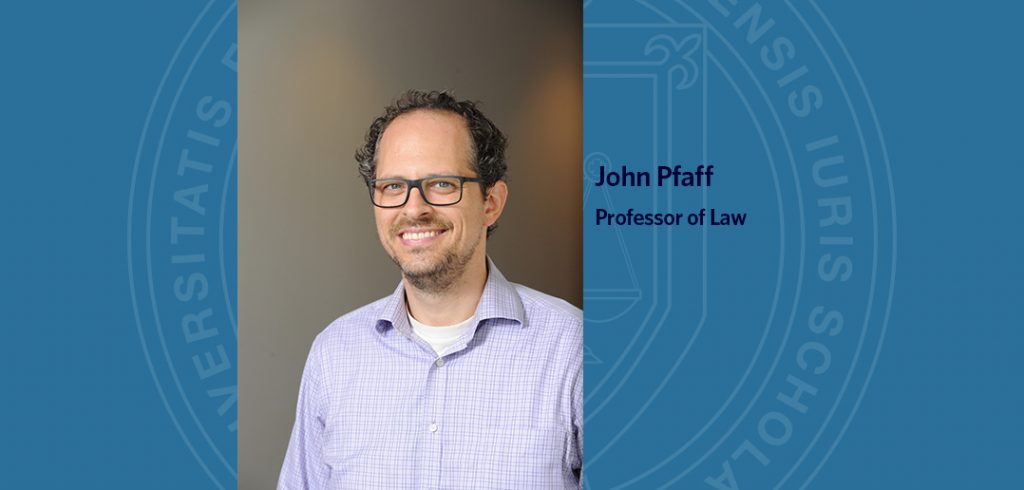Professor John Pfaff shared his expert opinion with The Appeal on New Jersey’s COVID-19 bill and the United States’ incarceration rates.
In the midst of the coronavirus pandemic, we may finally be getting some effective criminal justice reform. On July 30, the New York Times reported that New Jersey is considering legislation that could release about 20 percent of its prison population because of fears about the coronavirus. Unlike most sentence-reduction bills in recent memory, this bill includes reductions for people convicted of violent crimes.
The New Jersey bill contrasts with coronavirus measures in places like California that only focus on releasing those convicted of nonviolent offenses. New Jersey’s bill is an important step forward in reducing the overbearing harshness of the criminal system. Such sentence reductions, if expanded across the country, could increase public welfare and save the state money without endangering public safety.
…
As Fordham University law professor John Pfaff explains, the numbers in the prison population are largely influenced by the states’ sentencing people convicted of violent crimes. This point conflicts with the idea that the war on drugs is the real cause of mass incarceration. Pfaff says that, even if we released everyone in jail who is there because of a drug offense, it is likely we would still have the highest incarceration rate in the world. The numbers back that up: About one-fifth of the people in jails or prison are there only for a drug offense. If we released all of them we would have approximately 1.8 million people locked up, while China, our next closest “competitor” has 1.5 million. If we really want to reduce mass incarceration, we need to reduce the number of people in jail because of violent offenses.

